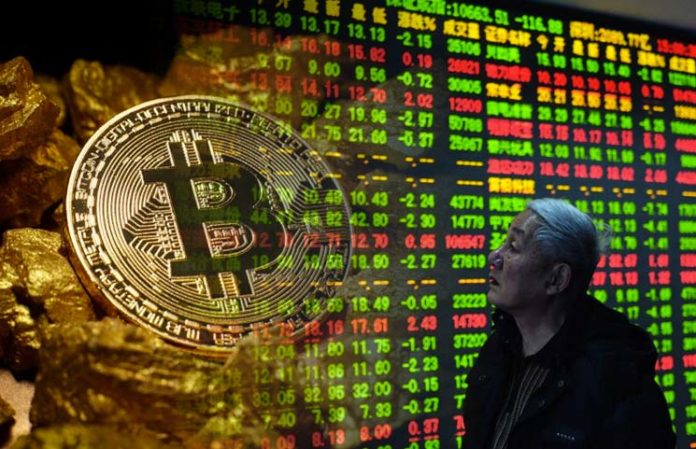
The Mysterious Creator:
In the summer of 2009, a person or a group of individuals who went by the name of Satoshi Nakamoto created Bitcoin. Rumor has it that he/they has/have disappeared from the internet in late 2010, and no trace of him/her was found. The name of the someone you are acquainted with remains unknown; just as well, nobody knows whether they are alive or dead. There was just one form of contact people-to-interaction with him; only emails and the various websites. According to his wealth, he is one of the wealthiest individuals in the world, with 980,000 Bitcoins in his pocket. This article gives you the information on 9 Things You Didn’t Know About Bitcoin. Read more about bitcoin at cannabis-wealth.com.
Losing Bitcoins:
Your Bitcoin address (also known as the access to the unique identification) becomes unusable. If you lose your Bitcoin address, you lose your BTC, otherwise known as the exclusive secret key. You have the BTC, as well. According to current estimates, it is estimated that at least 60% of all Bitcoin addresses are mostly fictional, which implies that there are already immense numbers of users who have misplaced their wallets and would depend on someone to provide their public key to be able to access their bitcoins.
Liberland:
A micronation known as Liberland was established between Croatia and Serbia in April of the same year. It was co-founded by a politician, a publicist, protester, and President of the self-electing country of Liberland, who is known as Vít Jedlička. The official currency of Liberland is BTC, so that it will be accepted as a currency in Liberland. Many people in the government agree that Bitcoin and its principles of blockchain offer a safe and verifiable digital means of recording electronic, financial, and physical properties.
Processing Power:
Since bitcoins are costly to obtain and use, mining them can be time- and resource-intensive, you can, because you can’t recoup your investment until you get your bitcoins. A significant number of computers and equipment, such as “mining rigs,” must be used to mine bitcoins. The quicker you process the results, the more rapidly you will have the ability to add a block to the network, and the sooner you will be paid with bitcoin.
Power Consumption:
On average, Ireland uses over 5,000 kWh of energy per year. Both the Bitcoin mining farms use a volume of energy equivalent to 6 exajoules of 1,000 terawatt-hours— about the same amount of fuel as six barrels of oil per year. In the context in which you wrote in the previous sentence, these farms use about the same amount of energy as the whole of Ireland, which is the second-largest city in Europe and has 84,421 square kilometers of land area.
Bitcoin Ban:
Some nations worldwide, such as Canada and the United States, have wholeheartedly embraced the digital currency, although others have shunned it. Bitcoin use has been outlawed in almost every country, except Bolivia, Iceland, Bangladesh, and Ecuador. Furthermore, Thailand and Iran are examples of nations who notice’ request citizens to abstain from utilizing cryptocurrency trading though they embrace it.
Limited Number of Bitcoins:
The maximum number of bitcoins that can ever be released has been capped at 21 million. Almost 80% of the 21 million Bitcoins have now been mined, meaning that there are just around 17 million to go.5 million to be mined before Bitcoin’s finite supply runs out. But don’t worry; there will be bitcoins to mine before 2140 more when you need them since miners are incentivized and expand the blockchain to include all blocks that are more than one megabyte in size. Miners get 12.5 bitcoins with each new block they mine and then get halved every four years The number of bitcoins paid with each successful addition to the blockchain decreases by half. According to estimations, the payout is anticipated to be cut in half again in 2020 to be cut to 6.25 BTC by the next year.
The Power of “B”:
When using the word “bitcoin, keep in mind that it can stand for Bitcoin or Bitcoin-like cryptocurrency. Both Bitcoin and B (the capital and lowercase 2) are distinct. Because Blockchain is the only cryptocurrency that is used for transfers, it is often known as Bitcoin. “The former (Bitcoin)” (the ledger that stores), about the transactions, is known as the “the transaction log.”
Faster Than Supercomputers:
The Summit, the world’s largest supercomputer, can process 122.3 petaflops, which is equivalent to 122 3.2 Quintillion floating-point operations every second. All the computing capacity currently used to mine bitcoins from the Bitcoin network nodes is around 80,704,290 petaflops. A supercomputer will perform various tasks when the Bitcoin network is involved with adding new transactions to the blockchain.









